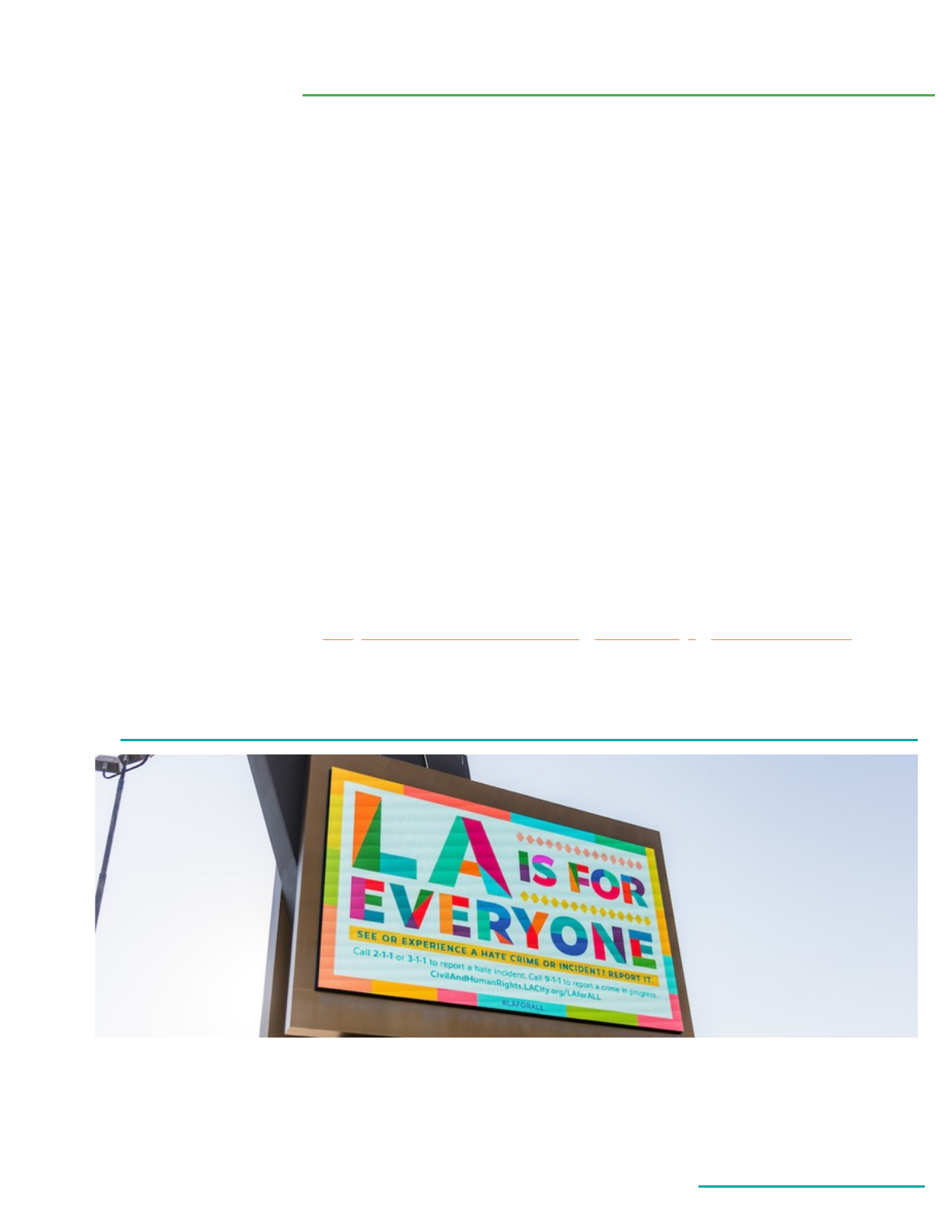
LACR
Pre -Law
Resource
Guide
Jamila Cummings
PUBLIC POLICY FELLOW
EDITED BY:
NICOLE BRYANT, JD, MPA
CHIEF OPERATING OFFICER
LA CIVIL RIGHTS DEPT. CITY OF LOS ANGELES
Last updated June 18, 2024

Welcome!
Dear Prospective Law Student,
Are you ready to begin your pre-law journey but don’t know where to start? This
comprehensive Pre-Law Resource Guide is designed to help you navigate the
complexities of the Law School Application process and prepare you for your legal
journey! Designed to serve as your roadmap, this guide offers invaluable insights into law
school admissions, LSAT preparation, and financing your legal education. Whether you're
a college freshman or a working professional seeking a career change, this resource is
tailored to assist you every step of the way.
I know navigating the law school admissions process can be challenging, filled with
complex information about academic, financial, and professional considerations. Rest
assured, you're not alone on this journey. As someone who has walked in your shoes, I
believe in your potential to succeed. This guide aims to equip you with the knowledge and
confidence needed to make your legal dreams a reality. If you’re able to lean on this legal
journey, do it! We need your lived experiences and commitment to make this world a
better place. LACR will be here to cheer you on and lift you as you prepare for this next
level.
Keep the faith and keep the fight!
Capri Maddox, Esq.
| Page 02

2
Who We Are
8
How to choose the right
school for you
5
Introduction
9
Financing Your Legal
Education
6
Components of the
Application
10
Frequently Asked Questions
(FAQs)
7
Navigating the LSAT
11
Resources
TABLE OF
CONTENTS
LA Civil Rights
| Page 03

PRE LAW RESOURCE GUIDE
About the LA Civil Rights Department
The Los Angeles Civil Rights Department (LACR) seeks to maintain and
strengthen the city’s diversity, equity, and accountability efforts. LACR is
committed to reducing bias, addressing injustices, and leveling the playing
field for underrepresented communities in Los Angeles through increased
community engagement, equity initiatives, and upward mobility
programming, such as LA Law Day, LA Medical Day, and more.
LACR is excited to represent the city's diversity and fight to create a
better LA For All. The department hopes to inspire community members
to advocate for their community and lead their neighbors toward a better
tomorrow. For more information about the LACR and ways to get
involved, please visit https://civilandhumanrights.lacity.gov/welcome.
| Page 04
Pre Law Resource Guide
LA Civil Rights

INTRODUCTION
UNLOCKING YOUR LEGAL POTENTIAL
Before we discuss the details of the law school application process, you should focus on
the most critical question—why law school? In order to achieve your goals, you need to
know your “why!” Knowing you want to be a lawyer is a great first step, but the law
school application process will require you to think critically about your WHY. What about
law school or the legal field piques your interest? Are you looking for a career change? Are
you interested in helping your community in a meaningful way? Are you interested in
politics? Or maybe you have always wanted to be a lawyer, but didn’t know where to start!
Whatever the reason, make sure you understand your why so you have your goals in mind
while crafting your application!
Short answer –yes! Deciding to attend law school is a choice that requires thoughtful
consideration of your interests, strengths, and career aspirations. Law school is for
anyone willing to work hard and commit to the rigorous academic and professional
demands it requires. A law degree can open doors to various careers that encompass
different sectors of society, such as human and civil rights, government, medicine,
technology, entertainment, sports, and academia, to name a few. Prospective applicants
with strong analytical, written, verbal, and oral skills are especially strong candidates for
a JD. Many individuals find a legal degree appealing because of its ability to create lasting
social change and make a positive impact on an individual level and society as a whole. In
order to best gauge if law school is right for you, consider the following:
Why law? What draws you to the legal profession? It’s okay if you do not have a firm
answer yet; consider your motivations and interests in pursuing a legal career!
What are your skills and strengths? Do you have the tenacity needed to perform
well in law school?
Have you considered the costs associated with law school? Consider the financial
implications associated with a legal career and the sacrifices you might have to
make.
IS LAW SCHOOL FOR ME?
| Page 05
Pre Law Resource Guide
LA Civil Rights

The law school application consists of several components that will provide the admissions
committee with a comprehensive overview of your academic background, qualifications for
law school, and motivations for pursuing a legal career. The components are designed to let
the admissions committee learn more about you and your legal aspirations. The application
consists of a personal statement, LSAT score, undergraduate transcripts, letters of
recommendation, resume/curriculum vitae (CV), optional essays/statements, and addenda.
Components of the Application
Personal Statement (PS)
The personal statement is one of the most important components of your application. This is
your opportunity to explain to the admissions committee why you want to go to law school
and how you will help the legal profession. Use your essays to showcase your unique
qualities, lived experiences, abilities, and reasons for pursuing a legal education. This is the
time to brag (professionally of course!) about your achievements (academic/professional)
and highlight your passion for law!
LSAT
The Law School Admission Test (LSAT) is a standardized exam designed to asses skills
associated with success in law school. Your LSAT score is extremely important in the
admission process, as it helps schools evaluate your academic potential and readiness for
legal scholarship.
Undergraduate Transcripts
Law school requires official undergraduate transcripts from ALL universities you have
attended. Your academic record provides admission committees with information about your
academic performance, course selection, GPA, and the rigor of your undergraduate program.
Having a formidable academic record can make you a stronger candidate for competitive law
schools. Once you graduate your undergraduate GPA is set. Therefore, do all you can to
protect your GPA during your undergrad school years.
LAW SCHOOL APPLICATION OVERVIEW
THE LAW SCHOOL
APPLICATION
Pre Law Resource Guide
| Page 06
LA Civil Rights

Components of the Application
Letters of Recommendation
Law Schools typically require 2 - 4 letters of recommendation for the law school
application process. If you are applying to law school immediately after
undergrad, at least ONE of your letters of recommendation should come from a
professor. If you are applying post-grad, recommendation letters can come from
employers, volunteer supervisors, or anyone else (outside of family), who can
attest to your abilities, character, and potential for success in law school.
Letters of recommendation are really important because they provide insight
into your academic achievements, interpersonal skills, work ethic, and suitability
for a legal career. Choose individuals who can write a STRONG letter of
recommendation and really provide concrete examples to support their
endorsements.
Resume/Curriculum Vitae (CV):
Your resume or CV should detail your educational background, work experience,
extracurricular activities, leadership roles, volunteer work, and other relevant
accomplishments. Your resume should highlight meaningful experiences to you
and, if possible, demonstrate your commitment to law and the legal industry.
THE LAW SCHOOL
APPLICATION
LAW SCHOOL APPLICATION OVERVIEW
(CONTINUED)
| Page 07
Pre Law Resource Guide
LA Civil Rights

Components of the Application
Optional Essays/ Statements
First things first — I know they may say these essays are optional, but they are
not. If the law school offers another opportunity to show your writing skills,
highlight your character, or demonstrate your passion for law, take it! These
optional essays often allow you to address specific topics, such as diversity,
overcoming adversity, or explaining a significant gap in your academic record. If
you choose to write an optional essay, make sure you are incorporating new
information that cannot be found elsewhere in your application. You can also use
these essays to expand on a personal hardship that shaped you or highlight a
meaningful experience that captures the essence of who you are.
Addenda
Addenda are supplemental statements that allow you to address specific
aspects of your application that may require further explanation or clarification.
Common topics, include LSAT score fluctuations, academic performance trends,
or significant life events that have impacted your educational journey. The
addenda should be concise and factual, providing context without making
excuses. Do not use this space to highlight insignificant information.
Ultimately, a well-prepared law school application includes all of the required
information (LSAT, transcripts, resume/CV, PS), optional essays, and an addenda
if needed! A strong application requires proper planning and time to craft. Please
do not wait until the last minute to create your application! Quality work takes
time! The more thoughtful and considerate you are, the better your chances are
of getting into your dream schools. Your lived experiences matter, take the time
needed to craft a thoughtful application.
THE LAW SCHOOL
APPLICATION
LAW SCHOOL APPLICATION OVERVIEW
(CONTINUED)
| g
| Page 08
Pre Law Resource Guide
LA Civil Rights

Choosing the right schools to apply to requires thoughtful consideration of
a variety of factors to ensure your school selection is a good fit for your
academic, professional, and personal goals.
Evaluate Your Academic Profile
When selecting schools to apply to, consider your undergraduate GPA and LSAT
score, as these are two crucial components the law school admission committee
will examine. Before applying to any school, make sure you research the median
GPA and LSAT for admitted students to better gauge where you stand as a
potential applicant. Place your schools in three tiers (Safety, Target, and
Reach).
Safety schools are schools where your GPA and LSAT scores fall above the 75th
percentile of admitted students. You have a strong chance of acceptance at
these schools, making them safer options in your application process.
Target schools are law schools where your GPA and LSAT scores align with the
50th percentile of admitted students. You have a competitive chance of
acceptance at these schools, making them realistic targets for your application.
Reach schools are law schools where your GPA and LSAT scores fall below the
25th percentile of admitted students. While these schools may be more
challenging to gain acceptance to, they offer the potential for a higher reward in
terms of prestige and opportunities.
SCHOOL
SELECTION
HOW TO CHOOSE THE RIGHT SCHOOL FOR
YOU?
| Page 09
Pre Law Resource Guide
LA Civil Rights

Personal Considerations
In addition to considering your academic profile, consider your career
goals and personal preferences. Consider factors such as ideal jobs,
location, faculty-to-student ratio, and program concentrations and
specialties. Make sure you research all prospective schools you're
considering, carefully considering their ranking, ABA accreditation status,
reputation, bar passage rates, employment outcomes, and strength of
alumni networks.
Finally, make sure to consider the cost and financial aid available to you!
Always evaluate the cost of tuition, living expenses, and available
financial aid options at each law school. If possible, try to visit campuses
or attend virtual events. By carefully considering the factors, you can
create a good list of prospective schools that best align with your goals
and preferences. Creating a tailored list will ensure you attend a school
that will set you on the most successful path for law.
Choosing a law school is no easy feat, and truly requires thoughtful
consideration about your future.
.
SCHOOL
SELECTION
HOW TO CHOOSE THE RIGHT SCHOOL
FOR YOU?
| Page 10
Pre Law Resource Guide
LA Civil Rights

The Law School Admission Test (LSAT) is a standardized exam designed to assess the
reading comprehension, logical reasoning, and analytical reasoning skills essential for
success in law school. It consists of multiple-choice questions and a writing sample, with
each section serving a specific purpose in evaluating a candidate's aptitude for legal
studies. The LSAT is comprised of four 35-minute test sections. Between the second and
third sections, there is a 10-minute intermission. *Please note that those with
accommodations may have additional time. Starting August 2024, the LSAT will consist
of two Logical Reason (LR) sections, One Reading Comprehension (RC) section, and one
unsecured section of either LR or RC.
ALL ABOUT THE
LSAT
COMPONETS OF THE LSAT
COMPONENTS OF THE LSAT EXPLAINED
Logical Reasoning: This section of the exam will test your ability to critically evaluate and
analyze arguments. You'll be presented with short passages and asked to identify
assumptions, draw conclusions, and recognize logical flaws within the arguments.
Analytical Reasoning (Logic Games): This section assesses your ability to understand the
structure of relationships and draw conclusions about them. You'll encounter various logic games
that require you to organize information, make deductions, and solve complex puzzles within a set
of rules.* Please note that beginning August 2024, this section will not be included in the exam.
Reading Comprehension: This section measures your ability to understand and analyze
complex texts similar to those encountered in law school. You'll be asked questions about
the main ideas, details, and structures of the passages provided, demonstrating your
comprehension and critical reading skills.
Writing Sample: While the LSAT writing sample is not scored, they are heavily considered
by law school admission committees when reviewing prospective applicants' applications.
The writing sample provides law schools with an example of your ability to construct a
reasoned argument and communicate effectively. You'll be given a prompt and asked to
present a well-reasoned argument supporting or opposing a given position.
| Page 11
Pre Law Resource Guide
LA Civil Rights

FINANCING YOUR
LEGAL EDUCATION
PAYING FOR LAW SCHOOL
There’s no beating around the bush; law school is extremely expensive. The average
cost of attending law school can range anywhere from $150,000 - $300,000. When
applying to law school it is important to develop a financial strategy that includes
creating a realistic budget that includes tuition, living expenses, and other relevant
costs. As you embark on your educational journey, it is paramount that you create a
comprehensive strategy that will help you manage these expenses realistically. Your
budget should encompass repayment options, financial aid packages, and anticipated
future income based on your legal specialty and location. Keep in mind, depending on
your legal specialty, location salaries can vary. Questions to consider while choosing a
legal specialty are:
What fields are growing the most rapidly?
What is the range of salaries of people in my area and field? Consider the low,
average, and high salaries.
What are the job prospects like in the area of law I want to study? Consider location
as well.
By carefully evaluating this information, you can make the most informed decision that
aligns best with your interests, skills, and financial goals, ensuring the best financial
career path for you. Now that you have considered those questions, we can delve into
the primary funding options available for law school.
The primary funding options in law school financial aid packages are scholarships,
grants, and loans.
Scholarships & Grants
Scholarships and grants are “free” money that you do not need to pay back. They can
come from your school’s financial aid package or outside organizations. Grants and
scholarships are often dispersed in two categories: Merit-based and need-based.
Merit-based scholarships are awarded to students for outstanding academic
achievement, talents, leadership ability, and other characteristics. Need-based
scholarships are awarded on the basis of the demonstrated financial need of the
student. Colleges will use your FAFSA to determine state and federal eligibility for
additional money.
| Page 12
Pre Law Resource Guide
LA Civil Rights

FINANCING YOUR
LEGAL EDUCATION
PAYING FOR LAW SCHOOL (CONTINUED)
Loans:
Student loans are the most popular way students finance their legal education and prove to be
a powerful aspect of many law school financial aid packages. Many students rely on loans to
help cover necessary expenses such as tuition, books, living expenses, and other educational
costs.
Federal Student Loans:
Stafford and Grad PLUS loans are popular choices due to their low-interest rates and flexible
repayment options. These loans can help bridge the gap between your financial aid and the
total cost of attendance. Note: Non - accredited law schools are NOT eligible for federal
funding.
Private Student Loans:
While federal loans are often preferable, private student loans from banks, credit unions, and
other financial institutions can supplement your financial aid package as needed. Always
compare interest interest rates, repayment terms, and other factors to ensure you're making
the best decision. In addition to scholarships, grants, and loans, many students consider
working part-time of securing a paid internship during law school. Part-time employment can
provide students with practical experience and earn income by working in positions that are
working in their fields of study.
Employer Tuition Reimbursement Programs:
These programs can be a valuable resource if you are a law student interested in attending
school part-time and are already working in a law-related field. Many employers offer full or
partial reimbursement for tuition, books, and other educational expenses.
Budgeting:
As previously mentioned, creating a realistic budget and closely managing your finances can
help you successfully navigate the financial challenges of law school. The resources section
has links to helpful budgeting templates and tips for saving money as a student. Proper
budgeting and money management will ensure you can pursue your legal education without
feeling overwhelmed by the high costs associated with it. [Post Bar/post grad]
Financing your law school education may be difficult, but it is most certainly not impossible. By
utilizing careful budgeting and comprehensive financial planning, you can make the best
decisions for your circumstances.
| Page 13
Pre Law Resource Guide
LA Civil Rights

The law school application process typically begins one year before the
year you plan to enroll in law school. For instance, if you plan to attend law
school immediately after undergrad, you need to start preparing your
application during the spring of your junior year and plan to submit it
during the fall of your senior year. It is strongly recommended that
prospective applicants apply as early as possible to maximize their
chances of admission. In the spring of your application year, your first
steps should include creating an LSAC account (LSAC) and registering
with Credential Assembly Services (CAS).
After registering for your first LSAT exam, you should begin researching
different laws that pique your interest. Make sure to compile a diverse
mix of perspective schools (mix of safety, reach, and target schools).
This is also a great time to begin identifying potential recommenders.
begin identifying who you want to ask for a letter of recommendation.
In the summer of your application year, ask for a letter of
recommendation (LOR) from your recommender and make sure you
provide your recommenders with your most up-to-date resume. During
the summer, continue studying for the LSAT if you are not satisfied with
your first score (most students retake the LSAT 2 - 3 times!) and begin
preparation for your personal statements.
Make sure to finish gathering all necessary documents for your
application (transcripts, letter of recommendation, resume/CV, and
supplemental essays). After submitting your applications, make sure to
celebrate your hard work!
LAW SCHOOL
APPLICATION
TIMELINE
| Page 14
Pre Law Resource Guide
LA Civil Rights

ALL ABOUT THE
BAR
After law school, you have one last hurdle — the bar exam. The bar exam is a
standardized test that is your ticket to officially practicing law as a licensed
attorney. It is challenging and comes with a hefty price tag. However, do not fear!
With thorough preparation and budgeting, you'll be ready to ace the exam and
launch your legal career. Thorough preparation and budgeting are crucial for your
success. However, with this resource guide in hand, I am confident you will
succeed!
What is the Bar Exam?
The bar exam is a standardized test that prospective attorneys must pass to
become licensed to practice law in a specific state or region. This exam is
offered twice a year, typically in February and July, however, dates may vary by
region. You are not licensed to practice without passing the bar exam.
Components of the California Bar Exam
The California Bar Exam has two components - the written exam and the
Multistate Bar Examination (MBE). The exam is typically held over two days.
Written Portion: The written portion consists of five essay questions and a
performance test. Three essay questions are asked in the morning, and the
remaining two in the afternoon. This section tests your ability to apply legal
principles to real-world scenarios.
Multistate Bar Examination (MBE): The Multistate Bar Examination (MBE) is a
standardized test developed and scored by the National Conference of Bar
Examiners (NCBE). This six-hour portion, divided over two three-hour sessions,
tests your understanding of fundamental legal principles.
During this portion, you will need to answer 100 multiple-choice questions. The
questions cover contracts, torts, constitutional law, criminal law, evidence, and
account for a significant portion of your overall score.
| Page 15
Pre Law Resource Guide
LA Civil Rights

Like most things associated with law school, paying for the bar is a significant
financial commitment! Costs related to bar prep can vary, but the most common
costs you might encounter are bar view courses, study materials, registration fees,
travel and accommodation, and lifestyle adjustments. It's important to plan your
finances carefully to ensure you can fully focus on your preparation without the
additional stress of financial burdens.
Bar Review Courses: For many law students, bar review courses are the most
significant expense for bar prep. A robust course should provide comprehensive
study materials, lectures, lecture notes, practice exams, and access to online
resources. Prices for bar prep courses can range from a few hundred to several
thousand dollars, depending on the courses you choose and the level of preparation
you need!
Study materials: Some students decided to study independently in lieu of a formal
bar review course. Study materials can consist of bar review books, flashcards, and
other materials. The cost of these materials can vary but is generally lower than the
cost of a bar review course.
Registration fees: Like many standardized exams, you have to pay for the test.
The fees associated with the bar exam itself can vary but typically range from a
hundred to several thousand dollars. If you plan to take the exam in California,
allocating $5,000 - $6,000 is recommended. Financial aid, such as scholarships and
grants, are available!
Travel and Accommodations: If you're taking the bar exam in a state other than
where you live, you'll need to consider travel and accommodation costs for exam
days.
PAYING FOR THE
BAR
| Page 16
Pre Law Resource Guide
LA Civil Rights

FAQs
Do I need a specific major to apply for law school?
Nope! Unlike certain graduate school programs like medical school or psychology, any major is
acceptable for law school. Law schools do, however, want applications that exhibit strong
foundational skills and prospective applicants' potential to succeed in law school.
What foundational skills are law schools looking for?
Law school requires a variety of strong skills, such as analysis, critical thinking, strong writing
skills, oral communication skills, time management, research abilities, commitment, and a
desire to serve others.
Are there any classes that can prepare me for law school?
Classes that strengthen your writing and logical reasoning skills are always helpful. If possible,
try to take at least one intensive writing English class (especially classes focused on law and
policy) and Philosophy classes centered around critical thinking and logic. These classes will
better prepare you for the LSAT.
Should I pay for a tutor or self-study?
There is no inherent advantage to paying for an LSAT tutor. At the end of the day, your LSAT
score is based on your level of discipline and willingness to study. Both options have pros and
cons. Consider the type of student you are and the support you need!
Do you trust yourself to create a study plan and stick to it? Or do you study better with a strict
regimen? For more advice, check out this helpful guide on self-studying for the LSAT.
What is the difference between early decision and non-binding early action?
Early Decision (ED) is binding:, early action (EA) is not. With ED, students can apply to one
school and promise to commit should they be accepted. Early Action is non-binding and allows
students to submit multiple early applications without a commitment to attend.
Whether you are just beginning your pre-law journey or deep in the Law School
application process, this Frequently Asked Questions section is here to answer any
lingering questions you may have!
| Page 17
Pre Law Resource Guide
LA Civil Rights

FAQs
What do HYS, CNN, and T-14 stand for?
Common pre-law abbreviations are
HYS: Harvard, Yale, Stanford
CCN: Chicago, Columbia, NYU
T-14: Top 14 law schools in the US
T-30: Top 30 law schools in the US
K-JD: (Kindergarten - Law School)
PS: Personal Statement
LOR: Letters of Recommendation
LOCI: Letter of Continued Interest
How many times can I take the LSAT?
You can take the LSAT a total of seven times, and no more than five times in a reportable score period.
Visit the LSAC website to learn more about testing policies.
How do law school admissions committees review multiple LSAT scores?
When you apply to law school, the admissions committee will receive a copy of every LSAT score.
Some schools take the average score while other schools use the highest score. Contact prospective
schools if you have specific questions about the admissions process.
What is the difference between an accredited and unaccredited law school?
Accredited law schools have a curriculum that meets the standards of the American Bar Association
(ABA), while unaccredited schools do not. Students who attend unaccredited law schools do not qualify
for federal grants and may have a harder time preparing for the bar exam upon graduation.
Additionally, students who attend unaccredited law schools have low earning potentials, lower bar
passage rates, and may have a hard time finding full time employment upon graduation. Please view
this report for additional information.
Whether you are just beginning your pre-law journey or deep in the Law School application process, this
Frequently Asked Questions section is here to answer any lingering questions you may have!
| Page 18
Pre Law Resource Guide
LA Civil Rights

Resources
**Disclaimer: All resources listed herein are provided for informational purposes ONLY. They are not affiliated with
the Los Angeles Civil Rights Department and are based solely on personal choice and recommendations. All
students are encouraged to use discretion and conduct their own research.
Paying for Law School
LSAC: Paying for Law School: A Preliminary Guide
LSAC Fee Waiver
Scholarships For Law School: Where And How To Get Them
Pipeline Programs
AccessLex Diversity Pathway Program Directory (Masterlist of Pre-law Programs)
East Los Angeles College Pathway to Law School Transfer Program | AccessLex (College
Freshman/Sophomores)
LSAC Plus Program | The Law School Admission Council
Resources for First-Gen/Low-Income Students
Immigrants Rising
Collective Success Network
Council on Legal Education Opportunity (CLEO)
SEO Law
Honors Program in Legal Studies at the Colin Powell School
UCLA School of Law Academic Outreach Resource Center
UCI Pre-Law Outreach Program
King Hall Outreach Program (KHOP) | School of Law
MTO Fellows Program
Sidley Prelaw Scholars Program | Diversity, Equity, & Inclusion
Eversheds Sutherland Scholars | Client Tools
LAWBound™ | LatinoJusticePRLDEF
About the Program | AT Foundation
For People of Color
LSAT Resources
7 Sage Fee Waiver Program for LSAT Prep
Khan Academy LSAT Prep
LawHub LSAT Prep (As of June 2024, Khan Academy Prep is available Law Hub)
| Page 19
Pre Law Resource Guide
LA Civil Rights

Resources for 1L
*Disclaimer: All resources listed herein are provided for informational purposes ONLY. They are not
affiliated with the Los Angeles Civil Rights Department and are based solely on personal choice and
recommendations. All students are encouraged to use discretion and conduct their own research.
Resources for 1L Law Students
Cali Law School Materials for Success
UC San Francisco Resources for 1L
Loyola Marymount University 1L Survival Guide
Affinity Groups
Arab American Lawyers Association of Southern California (AALASC)
Asian Pacific American Women Lawyers Alliance (APAWLA)
John M. Langston Bar Association
LGBTQ+ Lawyers Association of Los Angeles
Muslim Bar Association of Southern California (MBASC)
Mexican American Bar Association (MABA)
Women Lawyers Association of Los Angeles (WLALA)
Pre Law Resource Guide
| Page 20
LA Civil Rights

Connect With LA Civil Rights
www.LAisforEveryone.com
(213) 978 -1845
201 N. Los Angeles St., Suite 6
Los Angeles, CA 90012
Check out our socials
@lacivilrights
